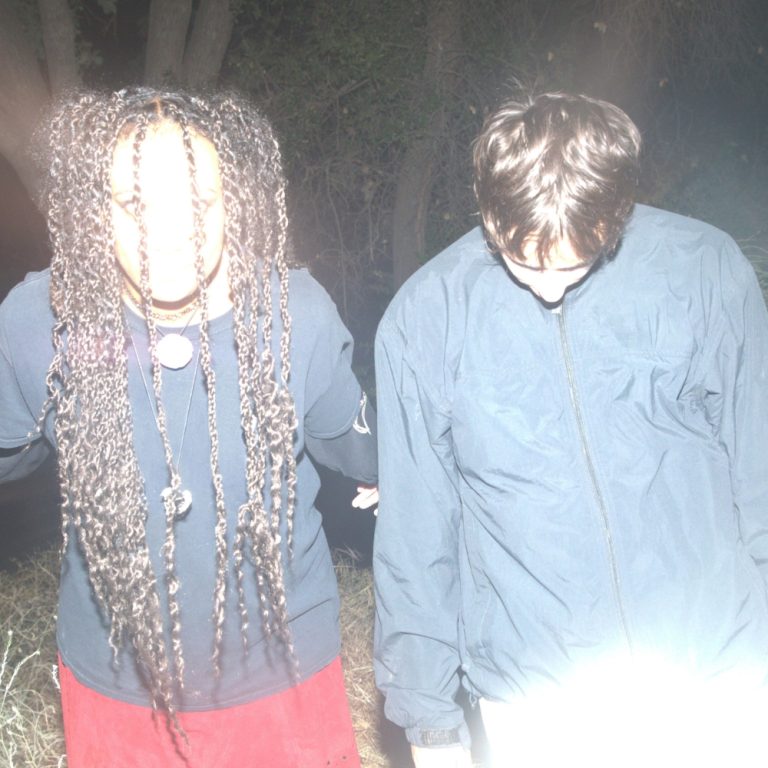This year marks the 15th anniversary of Spotify’s launch, which means that every teen or tween with a reliable internet connection has had the history of recorded music on demand for as long as they can remember. While this unprecedented influx of old recordings on young ears didn’t render new music unnecessary – modest estimates are that approximately 83 days’ worth of music were uploaded just today – it did unmoor the past.
Billie Holiday, Billy Squier, and Bushwick Bill are unstuck like Billy Pilgrim: there’s no older sibling or radio DJ adding context or playing gatekeeper any longer, no reason to play anything in order. To Generations Z and Alpha, yesterday’s music was released simultaneously, as if geologic history weren’t represented on the Grand Canyon in bands but as a collage. The 20-year trend cycle happens more slowly or quickly now; the 1980s were either big eight years ago, two years ago, or will be annually revived in perpetuity.
Jadu Heart’s Derealised was made for these times. Lockdown, naturally, played a role in its birth: the duo – Diva-Sachy Jeffrey and Alex Headford – were pinned to the wall and sleeplessly watching reruns. And so you have songs like “Cocoon” – a meeting of “Norwegian Wood” and Passion Pit – preceded by “Glistener”, which is a shoegazing throwback to a fellow plea for health in The Beta Band’s “Dry the Rain”.
Jadu Heart aren’t particularly maverick in their music-making, but happily abandon the convention of albums as building blocks. Their debut album Melt Away, released only four years ago, was an experiment in weightless indie pop on a variety of beats, be they IDM, equatorial, or the distillation of rain tapping on a window. Without being guitar-heavy, 2020’s Hyper Romance was rooted in strumming patterns that obeyed the constraints of right-handed syncopation: like taking Radiohead’s “High and Dry” and inspecting it from all the camera angles in a modern, sports arena.
Derealised is, in some ways, Hyper Romance’s inverse: guitar distortion comes in ample supply, but this isn’t a guitar album, either. Beats are more prominent than on Melt Away, but they’re also less reliable and completely prone to disappearing and re-emerging in different time signatures.
“Sway” provides the best example of this, a straightforward rock beat with meandering, self-criticisms juxtaposed above it until it the beat and lyrics swap roles: a 6/8 cadence staggers Headford, who opens his eyes and finds himself at his lover’s door. The album soars and cowers, alternately dreaming of the big rooms and wanting to lock itself in the closet.
Later, “You.Are” has Derealised’s most pulsating rhythm (reminiscent of Air or Phoenix) but, instead of going for the jugular, its falsetto vocals stretch the song’s bandwidth until the fabric begins to tear. It’s in this context that the singles released in the buildup, particularly “Blame” and “Freedom”, feel out of place. Each is so insistent melodically that any textural idiosyncrasies have been buried, as if they belong on a (sonically unrelated) album of their own. Their unimaginative drums tracks increase their distance from the other material.
In comparison, tour-de-force “There Is No Door” casts Jeffrey’s voice into the stratosphere and filters its Elizabeth Fraser-breathiness through Black Sabbath’s “Planet Caravan”. Like an escaped helium balloon, it eventually descends but as witness to a siege of spindly harp notes attacking Doves’ Lost Souls.
The next gust of wind might well carry Jadu Heart far from here. Headford repeats “Home for now” at the close of “You.Are”, though even if Jeffrey and Headford move on, the past will always be right behind.

